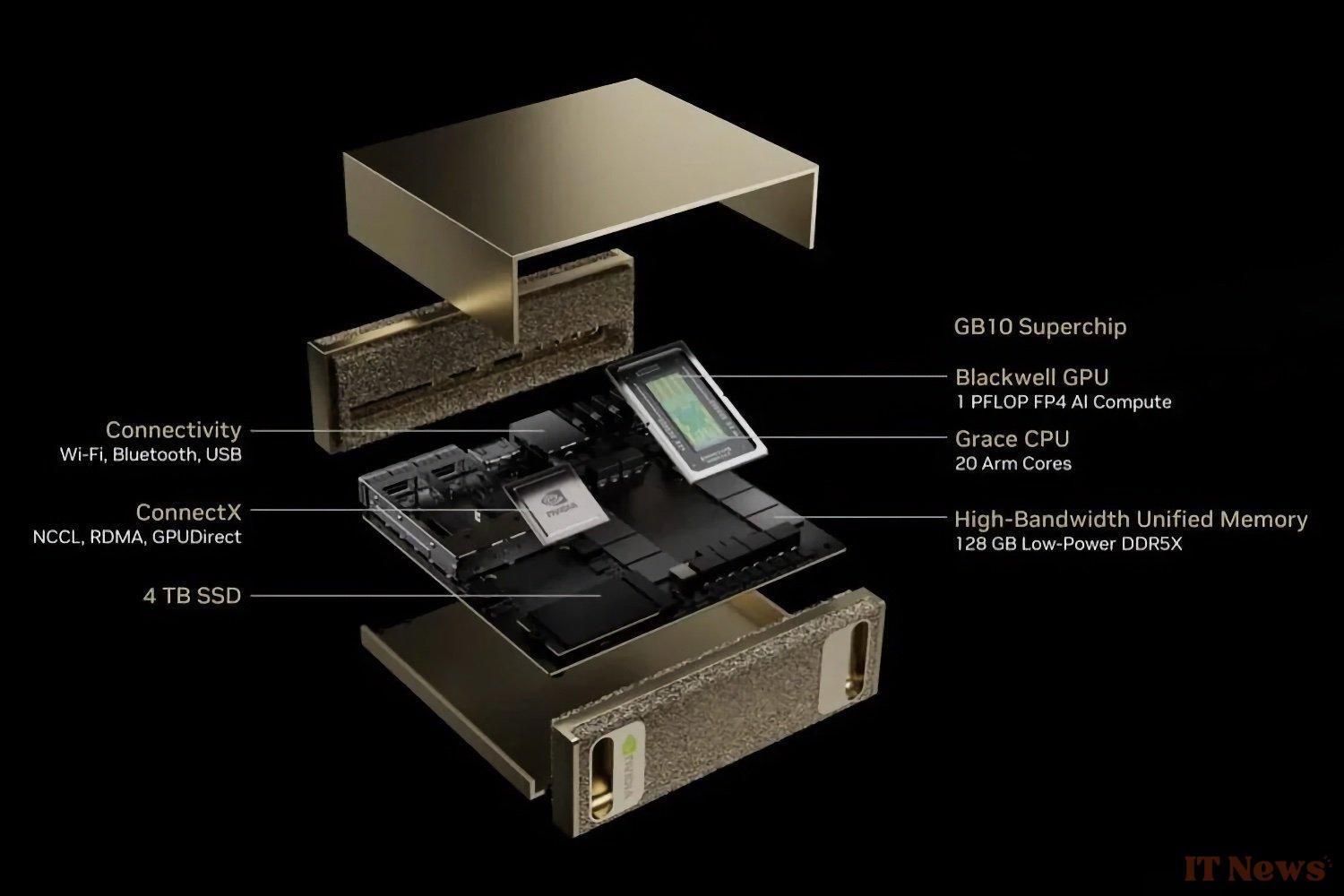Current AI algorithms are extremely demanding in terms of RAM: data transfers between the processor and the system memory are critical for this type of application, and the performance of these algorithms is highly dependent on the available bandwidth. Faced with this observation, NVIDIA is currently developing – in partnership with major names in the industry such asSamsung, SK Hynix and Micron – a new memory standard designed specifically to meet these needs. Called SOCAMM (System on Chip Advanced Memory Module), this new RAM architecture should be used in the next generation of so-called “personal” supercomputers. This is NVIDIA’s vision for this market.
Memory dedicated to AI calculations
One of the key features of SOCAMM memory is its wide I/O interface. SOCAMM works with 694 I/O ports where conventional DDR5 memory in computers is limited to 260 lines. This increase helps to alleviate bottlenecks in data transfer between the processor and memory, thus significantly accelerating AI calculations. Denser than conventional DRAM, this memory also offers reduced power consumption based on LPDDR5X technology. SOCAMM memory also adopts a modular architecture, allowing users to easily replace and upgrade memory modules when needed.
NVIDIA plans to integrate this type of memory into its future compact personal AI systems, particularly as part of itsDIGITS project, the first final products of which are expected to appear on the market next May. This aims to develop realmini AI supercomputers, for developers and businesses initially before likely offering them to the general public later. By developing its own memory standard dedicated to artificial intelligence now, NVIDIA is no doubt hoping to take control of this nascent ecosystem; the manufacturer's approach could thus give it a significant competitive advantage in the long term.
Source: Tom's Hardware



0 Comments